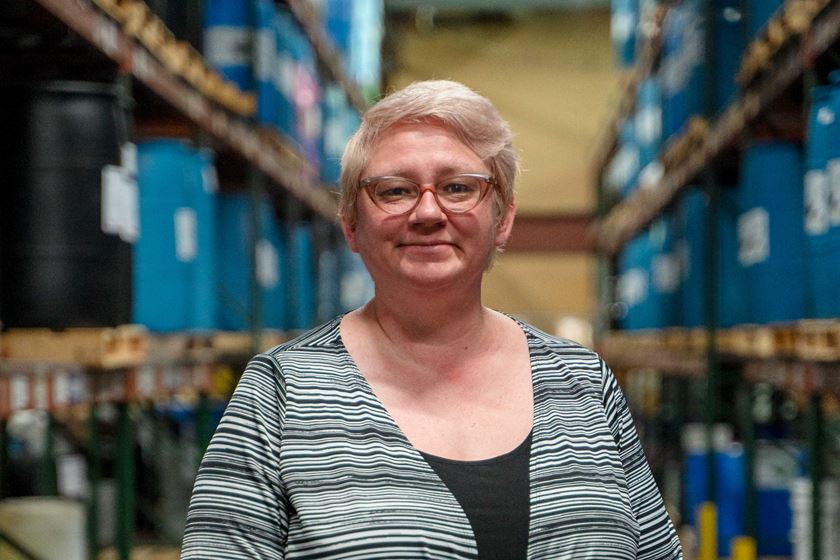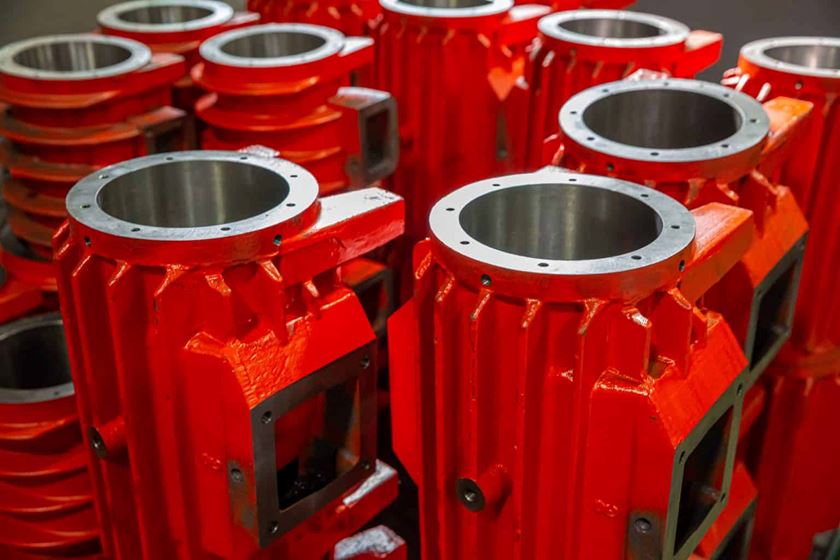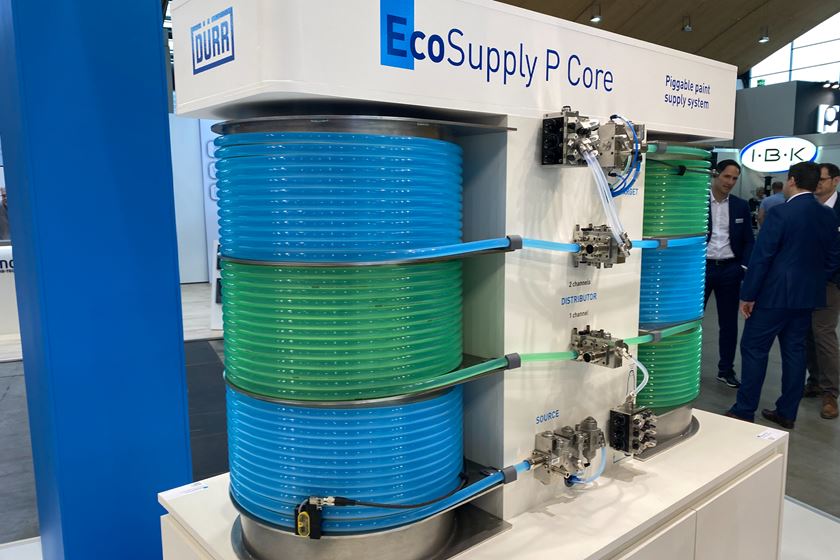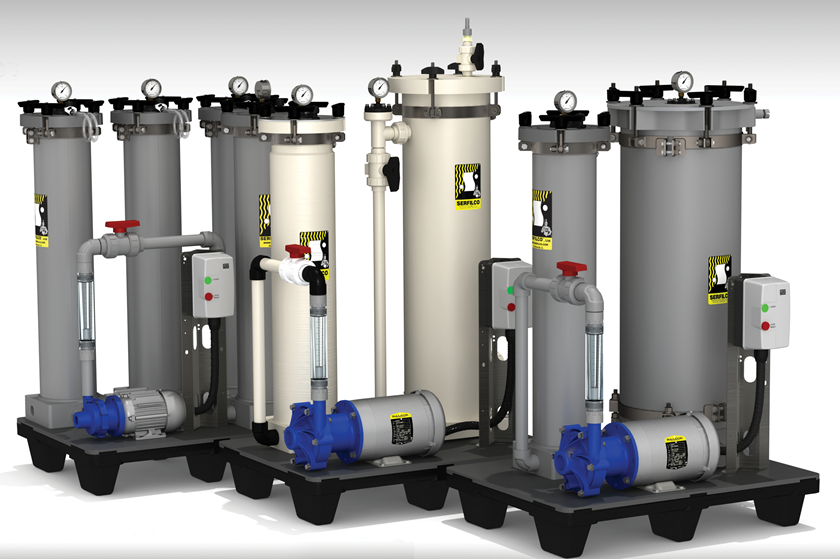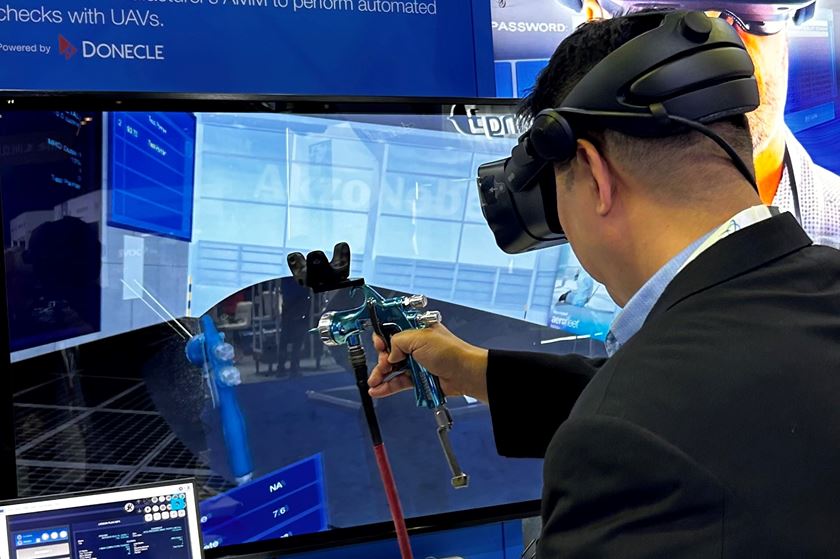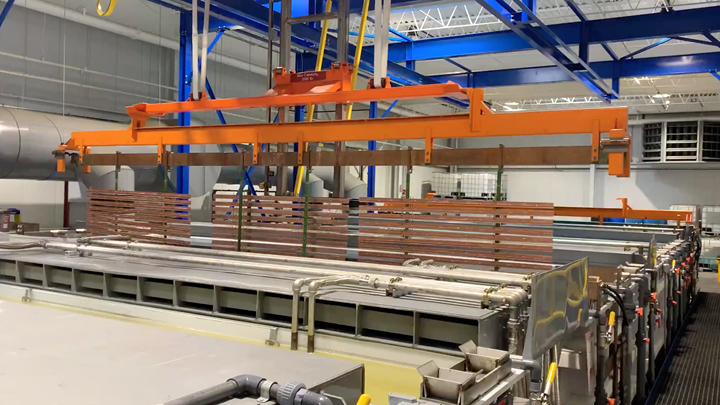
The Electric Materials Company’s new nickel and silver plating line boasts an automated hoist with a 5000-pound capacity and tanks capable of handling parts 20 feet in length.
Photo Credit: All photos courtesy of The Electric Materials Company
Sometimes it’s all in a name. The Electric Materials Company (Electric Materials), located in North East, Pennsylvania, manufactures a range of electrical components including extruded copper bar, commutators, AC rotors, as well as copper forgings, and castings. The company’s products are used in such sectors as electrical power, mining, military, transportation and architecture.
Working in the power generation and distribution sectors, Electric Materials deals with an increasing demand for tin, silver and nickel plating. The largest driver of this increased demand are data centers, which comprise racks and racks of servers and draw such massive amounts of power that solid bar material is needed to transmit the electricity. These copper busbars are a large part of Electric Materials’ business. The company provides custom copper extrusions, machining, as well as nickel, silver, and tin plating that can be applied to its full-length extrusions. The company has established itself as North America’s leading provider of data center power distribution systems. The facility covers approximately 420,000 square feet with over 140 employees.
Featured Content
According to Gian Marc Casolini, sales and business development manager at The Electric Materials Company, as the data center market expands, the need for U.S. power systems designed to meet those exacting demands has been on the rise.
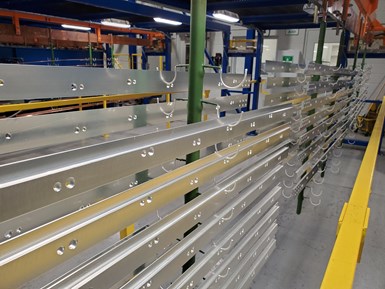
The data center market is driving demand for silver- and nickel-plated copper parts.
“Data centers have really driven the nickel and silver requirement,” Casolini says. “We have other customers for it, but the data center market, in particular, has been very demanding of the quality, the thicknesses, and the repeatability of the product that we can make.”
Electric Materials recognized the market demand and the need to supply large volumes of long parts. The company’s previous plating lines were designed for batch processing and as such had physical limitations. The baths could only handle parts 8-10 feet long. With rising demands for larger copper bars, Electric Materials found itself in need of the capacity to increase production. In addition to increased capacity, high-quality results and repeatability were also a must. The company began investigating ways to have a highly automated system with multiple racks in order to process larger parts at an increased volume.
In 2019, customer demand reached a tipping point for Electric Materials. The company had found itself outsourcing an increasing amount of material to be plated and multiple factors were contributing to the need to bring the process back in-house.
“There were increased transportation costs and by sending the parts out for plating we were starting to feel like we had lost control of the finish of the product. We really wanted to be able to control that better within our facility,” Casolini says. “So, over the course of 2020, we invested quite heavily into a highly automated plating line that can process both the nickel and the silver with multiple racks at once and plate parts up to 20 feet in length.”
Design and installation
The company turned to Fanta Equipment Co. of Cleveland, Ohio, to build the new line. Fanta provides turnkey solutions for finishers through the design, manufacture, and installation of manual and automated finishing lines. According to Frank Fanta, president of Fanta Equipment, the company had worked with Electric Materials for more than 45 years — but as a customer. With its focus on specialized copper parts, Electric Materials was Fanta’s supplier for busbar used for hooking up rectifiers to plating tanks, as well as for copper anode balls used in electroplating. The existing relationship made for a natural partnership for the project. In addition, Fanta was within 100 miles of Electric Materials’ facility. The stage was set for a seamless build and installation. And then, COVID hit. Lockdowns were happening at the state level and despite being only 35 miles over the Ohio-Pennsylvania border, the companies had to grapple with travel restrictions.
“The biggest challenge was transporting the equipment,” Fanta says. “The State of Ohio did not want you going into Pennsylvania, and Pennsylvania didn't want you to go into Ohio unless you are an essential worker.”
There were other challenges. “A lot of our suppliers who supply us with component parts and pieces for this line weren’t open,” Fanta says. “So we had to figure out how to get things delivered to us and find alternate sources, if we could —which took a bit more time.”
Simply keeping Fanta employees housed and fed during the installation added yet another hurdle. With hotels only operating at a fraction of their capacity and restaurants closed, it wasn’t easy. “Just trying to find the few places that were open for carryout only was a challenge,” Fanta says.
Nevertheless, both Fanta and Electric Materials teams persevered during the installation. Employees wore masks and adhered to social distancing protocols. The project managed to stay on track and Fanta was able to complete the installation by the target date. The new line boasts 22 foot long tanks, an automated hoist with the capacity to handle 5,000 pounds, a custom boiler system to heat the tanks, and an 85,000 CFM (cubic feet per minute) ventilation system.
Highly automated
Electric Materials dedicated an entire wing of its building to the new capabilities. The new line comprises eight tanks including rinse tanks, wash tanks, a nickel tank, a silver tank, as well as the rinse and repeat steps in-between. The line has a PLC-controlled overhead crane system that moves flight bars that drop into the individual tanks.
“At any given time, we can have multiple flight bars in process, giving us a pretty high throughput,” Casolini says.
The line is highly automated, only using manual labor to put the product on the various hooks and the bars where it begins the process. From there the bars are picked up by the overhead cranes and sent to the various tanks to undergo the plating process and then the final rinses and drawing steps.
In addition to the plating system with its tanks, cranes and PLC controls, Electric Materials also established a quality control lab. This facility allows for verification of all critical chemical and physical plating properties ensuring optimum product performance and reliable system operation. Additionally, added capability allows for recapture of precious metals and enables proper water analysis and treatment in compliance with state and federal requirements.
To learn more visit elecmat.com and fantaequip.com
RELATED CONTENT
-
Nickel Electroplating
Applications, plating solutions, brighteners, good operating practices and troubleshooting.
-
Aluminum Anodizing
Types of anodizing, processes, equipment selection and tank construction.
-
Blackening of Ferrous Metals
The reasons for installing an in-house cold blackening system are many and varied.
















